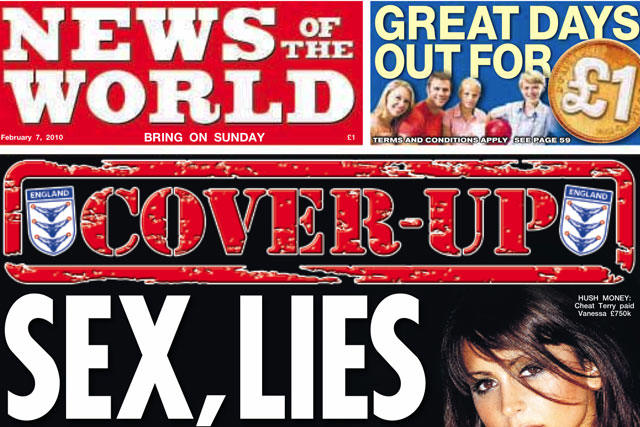And why should it trouble them? The big brands that advertise in the NotW do so because its 7.4 million readers fall into their target market. And if the readers are happy to buy a paper full of coke-peddling bisexual prostitutes, then shrewd advertisers are happy to advertise in it. But by the same cold, commercial logic, advertisers should now be scrambling to express their deepest concern about the latest phone-hacking allegations. No matter that the illegal activity of phone-hacking hasn't bothered advertisers to date, this week's news that the phones of murder victims might have been hacked has finally forced advertisers on to a moral soapbox. Every regular NotW advertiser should withdraw their ads from this Sunday's paper, and should make their position very plain, very public, very quickly. And every advertiser that has ever even considered advertising in the NotW might as well do the same.
Because vocal consumers (miniscule in number, though they are) expect big brands to take a stance, and those that don't are inviting trouble. There's a social media bandwagon hurtling, and the big brands that don't get on board will be mashed beneath its wheels. Advertisers really have little choice but to "review" their relationship with the tabloid. This can be interpreted as: taking the opportunity to be seen to have a moral code; steering clear of the paper while the hot spotlight of negativity is focused upon it (and sales are likely to waver); being ready to advertise again once the whole affair has cooled.
This is basic stuff. In a case like this one, any advertiser that doesn't see the sense of taking a moral stand (even if it's actually a commercial stand, and a temporary one at that) deserves the public opprobrium they will almost certainly receive. This is not a case in which it's worth fighting the bloodthirsty pack; it's too sensitive, too serious. But in taking the highground, advertisers are setting new, public standards that they might find hard to live up to.
Many big brands have already found themselves at the centre of social media firestorms for their own questionable activities; most recently, Volkswagen was successfully attacked by Greenpeace for its record on CO2 emissions. So for many of those advertisers currently "reviewing" their NotW stance, this week should prove useful learning for when it's their turn to face the censure of the social masses. Because one thing's already absolutely clear: the Twittering, social media minority is mobilised and, after the NotW, they will find another high-profile cause.


